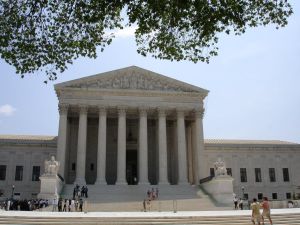As I discussed in a recent article, the United States Supreme Court to Rule on Jacksonville Juvenile Case, Florida has harsh sentencing practices when it comes to juveniles. In fact, approximately seventy percent of all juveniles sentenced in the United States to life without parole for non-homides were charged in Florida. While this issue has received a massive amount of media attention due to the recent United States Supreme Court Hearings in Sullivan v. Florida and Graham v. Florida, another issue remains. What about the Florida juvenile homicide cases in which a juvenile is sentenced to life in prison without parole? The Juvenile Justice Accountability and Improvement Act, H.R. 2289, is a congressional bill that:
“Requires states to: (1) enact laws and adopt policies to grant child offenders who are serving a life sentence a meaningful opportunity for parole or supervised release at least once during their first 15 years of incarceration and at least once every three years thereafter; and (2) provide notice of such laws and policies to the public and to victims of child offenders. Defines “child offender who is serving a life sentence” as an individual who is convicted of a criminal offense before attaining the age of 18 and sentenced to a term of imprisonment for life or a term exceeding 15 years. Requires the Attorney General to: (1) establish and implement a system of early release for each child offender who is under a life sentence in a federal prison; and (2) award grants to states to improve legal representation and other services for child defendants charged with an offense carrying a possible sentence of life in prison.”
If this bill were to pass, any juvenile serving a life sentence would be eligible for parole, but why should juveniles be treated differently? Many people feel that if a teenager can commit an adult crime, than he or she should complete adult time. However, our society has always functioned in a manner which establishes that juveniles should not be treated as adults. While we recognize that teenagers are not mature enough to purchase cigarettes or alcohol, vote, serve on a jury, drive a vehicle, or consent to certain medical treatment or sexual intercourse, we hold them to an adult standard when it comes to the commission of serious criminal offenses. Scientific research has found that children and teenagers utilize their brains in a different manner than adults as their brains continue to develop. In Roper v. Simmons, the United States Supreme Court banned the death penalty in juvenile cases due to this research and the likelihood of rehabilitation for minors. If the likelihood to rehabilitate a minor is great for juvenile defendants, then why is Florida continuously sentencing minors to life in prison without parole? While Florida’s interest in retribution is great, this interest can still be achieved by granting parole to rehabilitated offenders after serving a significant sentence.






